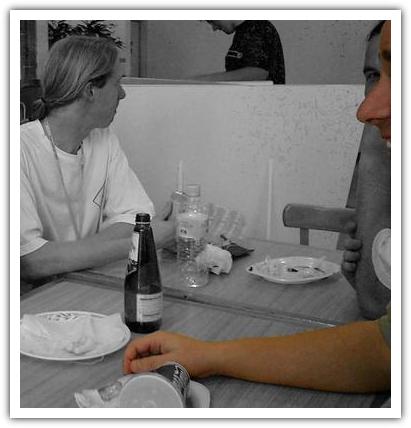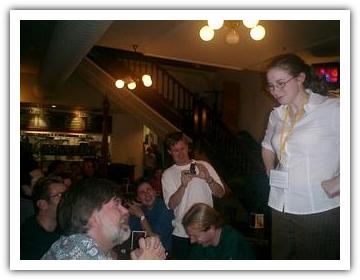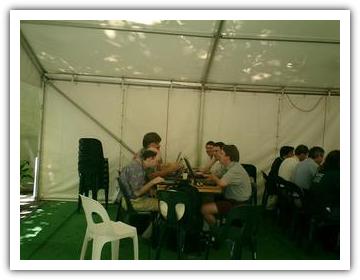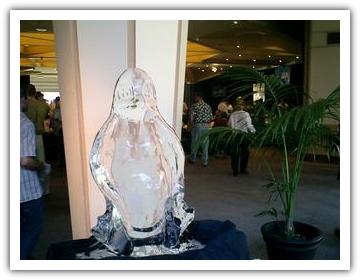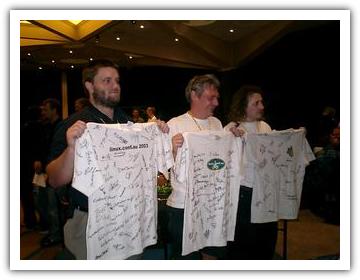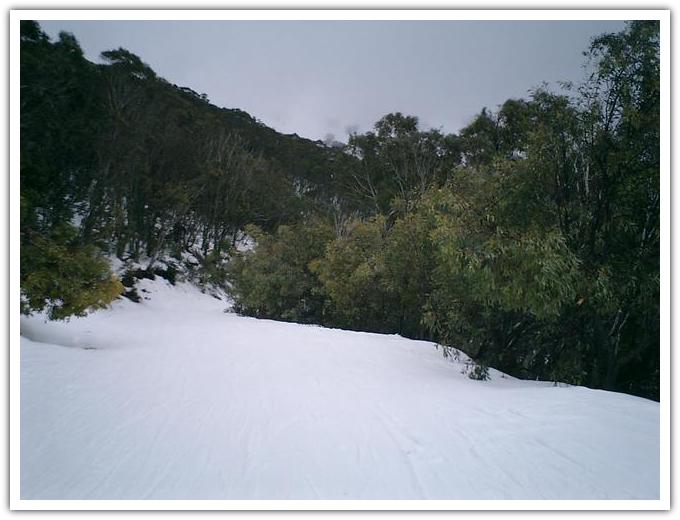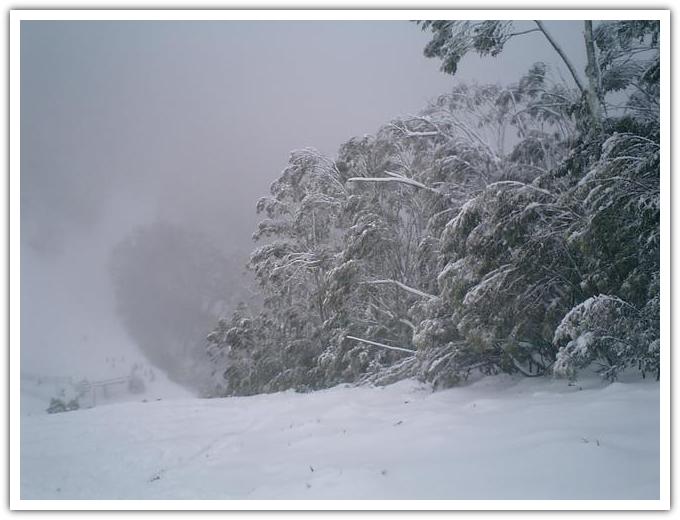Norbert Tretkowski’s unhappy, apparently:
Most of our users don’t care if this firmware is loaded by the Linux kernel, or by the hardware itself. They don’t care if this firmware is part of the Linux kernel, or if it’s sitting on-board on that hardware. It makes no difference, they just want to use their fucking hardware. I agree with Marco, this whole discussion is just ridiculous.
[…] I thought this issue will be fixed for a while with the next release, but looks like I was wrong…
Marco d’Itri seems to be unhappy too. I’m not really sure why; when you ask a question, you really should be prepared to accept whatever answer you get, as far as I can see. Follow that link if you don’t know what any of this is about.
In any event, it’s true that most of our users don’t care whether their firmware’s free or not; I know I certainly don’t. And it’s also true that most of our users care about having working drivers for the latest video and network cards, thanks to a recent purchase, I happen to share that concern. Unfortunately, the other thing our users care about, and that we care about ourselves, is respecting upstream author’s wishes, sometimes to a greater extent than even they care about. We’ve done this in the past by refusing to distribute KDE binaries, as the KDE license, that is, the GPL, was considered to forbid distribution of binaries that link with non-GPL-compatible libraries, which Qt was for quite some time. We’re doing the same thing with GPLed apps that want to use OpenSSL.
It’s highly unlikely that anyone’s going to sue anyone over any of these things: the free software community doesn’t care much for lawsuits in the first place, can often not afford them in the second place, and generally shares goals that are better achieved by putting up with the annoyance instead of suing.
On the other hand, that means that if we want to ensure that things like the GPL get taken seriously, we have to find some other way of making sure that happens than lawsuits and threats. Debian’s policy has long been to have a serious look for problems, and once they’ve been found, and thought about for a while, to put up with the inevitable pain that results from making a stand, and getting it solved.
Norbert suggests as a solution:
I think it’s time to activate nonfree.org to provide non-castrated kernel-images, an installer which supports the same hardware like the Linux kernel itself does, and other software which is affected.
We’ve just had a vote that says we’re going to keep distributing non-free software ourselves; and I thought I’d made it pretty clear that firmware wouldn’t need to go into non-free for sarge. That leaves only one reason to move to a non-Debian site: as an excuse to link non-free drivers into the kernel proper, rather than distributing them separately. That’s not necessary, since there’s an easy API for fixing the firmware problem; and it seems undesirable since it’s either the case that compiling in firmware is a GPL violation and no one should be doing it, or it’s not a GPL violation and there’s no reason for Debian not to be doing it. Setting up a new archive, and having users have to worry about whether they need to get the official installer or an unofficial installer for their hardware isn’t a win, and it’s not even a win compared to the effort required to either fix the problem for good, or to demonstrate that there isn’t a (legal) problem at all.
Hopefully Norbert and his supporters are as willing to spend some time doing some productive kernel and X hacking as they are to debate.
(Homework question: for those folks who think I’m, uh, verbose, consider ways of effectively dealing with issues like this that don’t involve repeated long explanations (ie, like this), that are at least equally effective, and that ideally don’t result in folks calling me arrogant the next day.)
(Oh: and if you’re Australian, sign the petition — thanks to slashdot, we’re a fifth of the way to where we’d like to be. If you’re not Australian, but you know some Aussies make them sign it, or do something similarly useful.)
UPDATE 2004/04/21:
Gah. Contrary to what DWN implies, nothing in the above is meant to have said that violating the GPL by including firmware in a Linux driver isn’t a release critical issue for sarge. I’ve updated the sarge RC issues page to include a summary of the situation. Maybe it’s just too nuanced. :(



